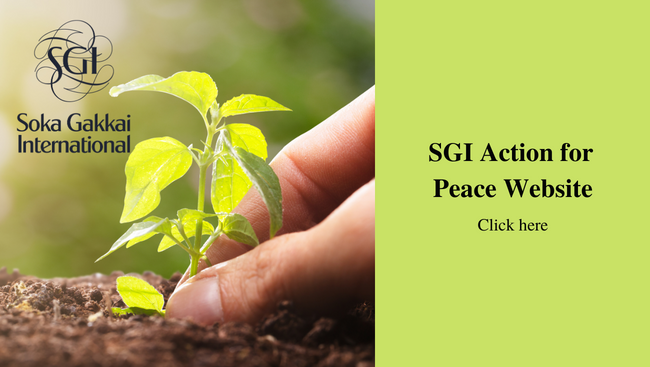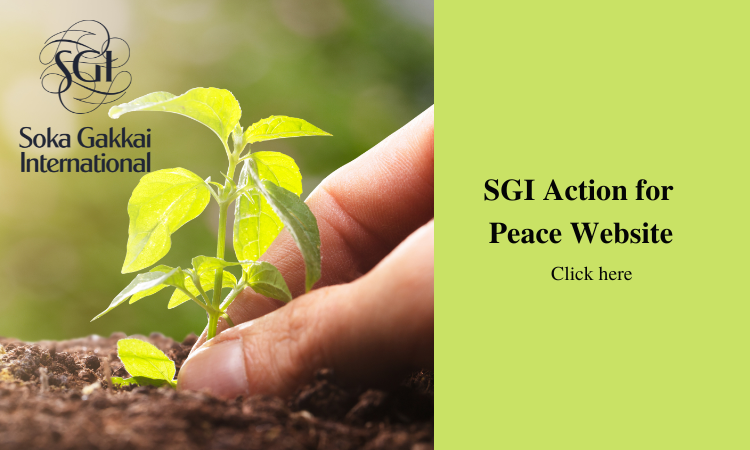- Small
- Medium
- Large
- Home
- In Society
- Action on Global Issues
Action on Global Issues
The Soka Gakkai and the SGI (Soka Gakkai International) engage in activities to promote a culture of peace [see Peace Activities Annual Reports]. The SGI has been accredited as a nongovernmental organization (NGO) in consultative status with the United Nations Economic and Social Council (ECOSOC) since 1983.
Working with the United
Nations, NGOs and other stakeholders, the SGI undertakes efforts to address global issues through
raising awareness among the public and bringing ideas and recommendations to the UN.
The SGI Office for UN Affairs operates in New York and Geneva, representing the SGI at the UN. The SGI Action for Peace website reports on SGI’s peace activities around the world and has related resources and information.
Peace Proposals
SGI President Daisaku Ikeda’s peace proposals, authored annually between 1983 and 2022, and statements he issued on challenges facing humanity play an important role in inspiring action in the following areas both at local and global levels.
Peace
Based in respect for the dignity and preciousness of life, the Soka Gakkai and the SGI promote a culture of peace as a set of values, attitudes and ways of life that reject violence and are centered on dialogue. It provides a framework through which the activities and concerns represented by the action areas described below can be approached as interrelated and interconnected.
Disarmament
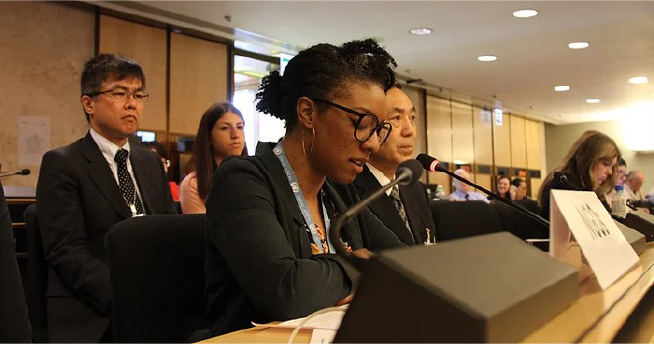
A second aspect of the SGI’s disarmament work focuses on working to stop killer robots, also known as autonomous weapons systems. The SGI is an active member of the Stop Killer Robots coalition, which calls for a new international law on autonomy in weapons systems. View resources promoting nuclear disarmament.
- The SGI’s nuclear abolition activities originate in second Soka Gakkai president Josei Toda’s 1957 Declaration Calling for the Abolition of Nuclear Weapons.
- The “Everything You Treasure—For a World Free From Nuclear Weapons” exhibition has been touring globally since its launch in 2012.
- Two digital tools—a Visual Storytelling Tool and a handbook that promote and explain the UN Treaty on the Prohibition of Nuclear Weapons (TPNW).
Environment & Sustainability
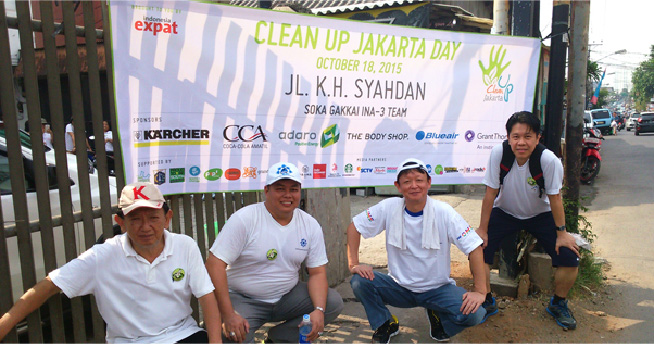
- The “Seeds of Hope & Action: Making the SDGs a Reality” exhibition highlights a vision of sustainable living and action toward realizing the SDGs.
- The “#SeedsofHopeandAction” is a participatory social media hashtag campaign to share actions toward implementing the SDGs and related Earth Charter principles.
- The documentary film A Quiet Revolution was created in collaboration with the Earth Council, UNDP and UNEP.
Human Rights Education
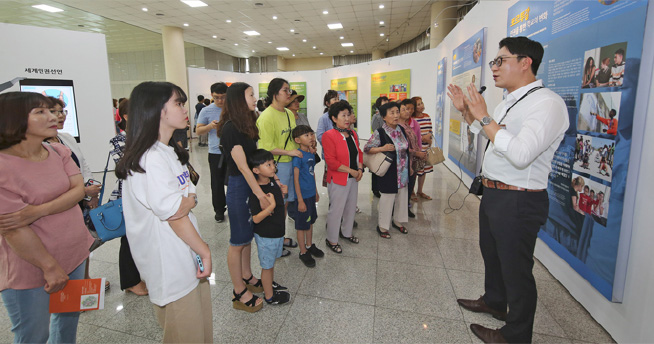
- The exhibition “Transforming Lives: The Power of Human Rights Education” was launched at the 34th session of the Human Rights Council.
- The film A Path to Dignity documents the impact of human rights education on schoolchildren, police officers and victims of domestic violence.
- The Human Rights Education Open Web Resource, a collaborative initiative, provides human rights education and training tools for teachers and activists.
Humanitarian Relief
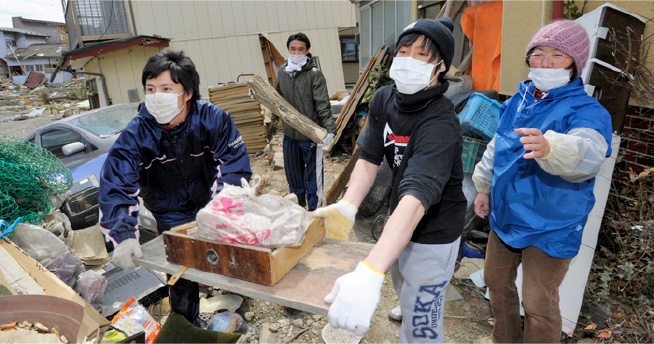
- The “Restoring Our Humanity” exhibition debuted at the first World Humanitarian Summit (2016).
- Over 1,000 Soka Gakkai community centers around Japan are primed to be able to respond to major disasters.
- Harnessing the capacities of those affected by disaster is central to the SGI’s relief and recovery efforts.
Gender Equality and Women’s Empowerment
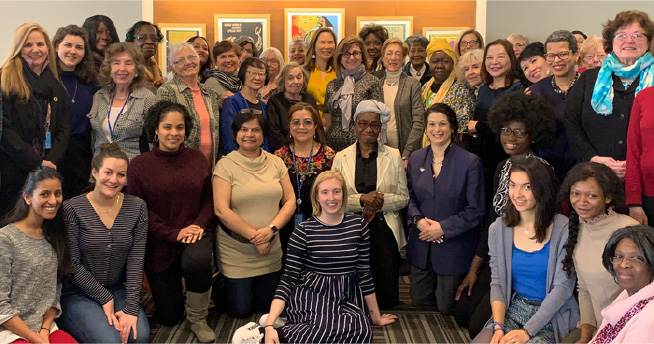
- The “Young Women’s Stories—Fostering Leadership Project” explores how young women’s personal development can help them empower themselves and others.
- CSW side events run by the SGI bring together young women from across the globe to discuss their role as leaders and initiators of change.
- The SGI has been involved in the NGO Committee on the Status of Women, New York (NGO CSW/NY), for over 20 years.





